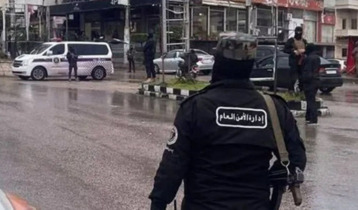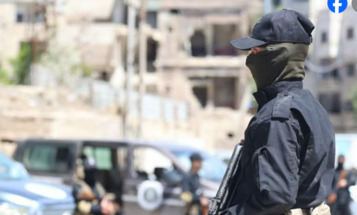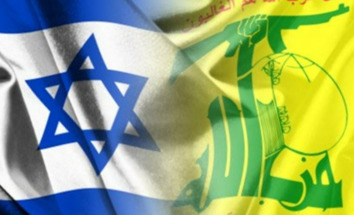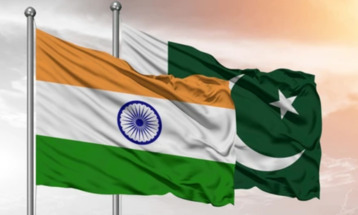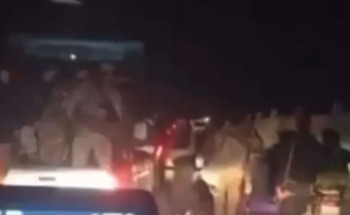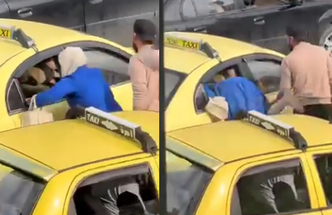-
Lebanon in lock down as protesters demand new government
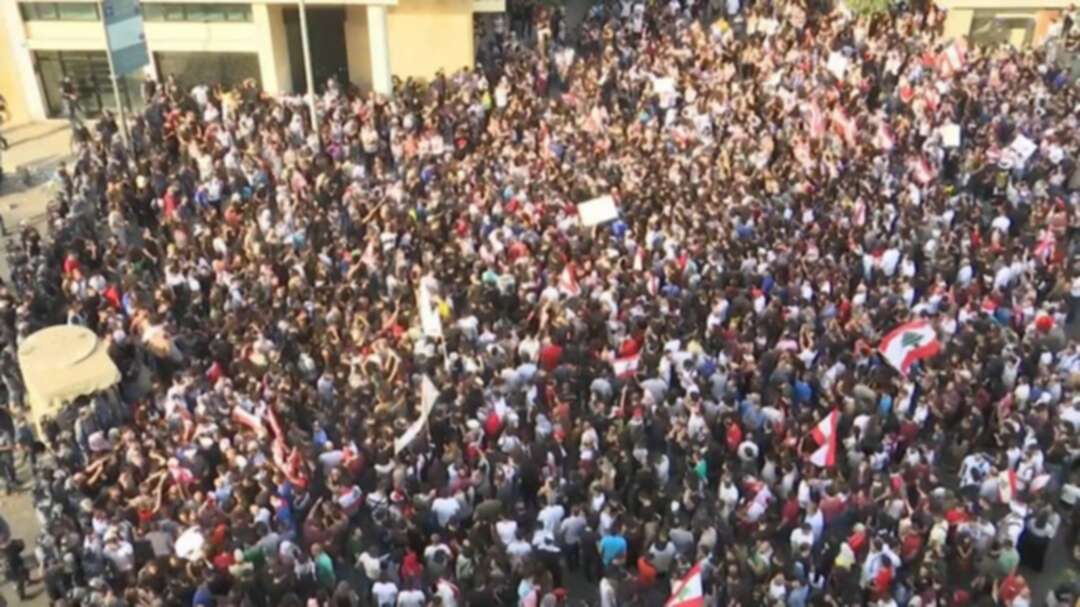
Protesters have called on the Lebanese government to resign after unpopular new tax proposals sparked two days of mass demonstrations.
The protests are of unprecedented nature in the mediterranean country, with people of all sects calling for the same demands and taking on the established political order.
One protester died in the Lebanese city of Tripoli, after the bodyguards of a former lawmaker allegedly fired at a demonstration to disperse the protesters, with local media saying that the army arrested one of the shooters.
Throughout Thursday night, protesters in Beirut’s Martyrs’ Square burned anything they could lay their hands on including advertising billboards, construction material, tires and trees.
Some protesters removed street signs and used them as battering rams against advertising units and shop fronts while young men on motorcycles dodged broken glass to feed the blaze with fresh bottles of gasoline.
The anarchic scenes in central Beirut continued throughout Friday, as young men declared that the protests would not end until the government resigned.
https://twitter.com/AlArabiya_Eng/status/1185198253781979136
“This is not the first protest in Beirut. But it could be the first step of a movement because today all the sects have come out into the streets: Muslim, Christian, Druze. We are all striking with one fist,” 28 year old Hasan from Beirut told Al Arabiya English.
People of all religious and political stripes attended the protests, unified in their anger toward the country’s precarious economic situation and widespread corruption among the political class.
Similar unrest has spread across the country, with thousands gathering in Tripoli’s main square according to videos shared on social media. Elsewhere in Beirut protesters blocked major roads and burned trash. Many Beirutis stayed at home, fearing damage to their cars and personal safety.
Anger has been building for weeks over an alleged shortage of US dollars within Lebanon’s highly dollarized economy. The unofficial exchange rate has soared above the authorized trading band of LBP 1,501-1,514 to the dollar, causing fears of bread and fuel shortages.
“Last month the dollar crisis, last week the fuel crisis and the bread crisis. The Lebanese people can no longer take it,” said Mohammed, a chef from North Lebanon’s rural Dinnieh.
Mohammed was forced to move to Beirut to find a job. He struggles to make enough money to pay rent in a city where 25 percent of apartments built since 1996 are empty.
“Now the telecommunications ministry comes out and says we are going to charge you for Whatsapp,” he continued.
At a Cabinet session Thursday, Lebanese ministers approved an unpopular per day fee for using internet-based phone calls over services like WhatsApp. The government is also considering raising value-added tax as part of the 2020 austerity budget, in an attempt to bring Lebanon’s budget deficit to 7 percent of GDP in 2020.
Lebanon has the third highest debt-to-GDP ratio in the world, at around 150 percent. International credit rating agency Fitch downgraded Lebanon’s economy in August to CCC, suggesting that the country will only be able to pay back its debts under favorable conditions.
The proposed Whatsapp tax was enough to spark nationwide protests; and yet Whatsapp and other social media platforms such as Facebook helped galvanize protesters, some of whom were as young as 15.
“It is revolution across all of Lebanon. It is not the first time it has happened, but this time it is on a bigger scale. The country is trash and the wages are rubbish,” said one bare-chested teenager.
The protests represent a major challenge to Prime Minister Saad Hariri’s government, who cancelled the scheduled Friday cabinet meeting in response to the protests. Hariri is set to speak later this evening.
Lebanon’s Progressive Socialist Party (PSP) leader Walid Joumblatt, a historical ally of Hariri, has called on his supporters to “peacefully” join the protests against the Lebanese government, advising PSP members to protest within the party’s areas to “avoid sensitivities.” Relations between the two party leaders have recently been strained, after a Twitter spat over the summer.
A common demand by demonstrators is a rerun of last year’s parliamentary elections.
“The MPs we voted to power haven’t done anything for us. I don’t have faith in a single MP… wherever there is money, they take it. Even the taxes we pay go into their pockets not into the state. If it went to the state, Lebanon would be in excellent health,” continued Mohammed.
“In the North
You May Also Like
Popular Posts
Caricature
BENEFIT Sponsors BuildHer...
- April 23, 2025
BENEFIT, the Kingdom’s innovator and leading company in Fintech and electronic financial transactions service, has sponsored the BuildHer CityHack 2025 Hackathon, a two-day event spearheaded by the College of Engineering and Technology at the Royal University for Women (RUW).
Aimed at secondary school students, the event brought together a distinguished group of academic professionals and technology experts to mentor and inspire young participants.
More than 100 high school students from across the Kingdom of Bahrain took part in the hackathon, which featured an intensive programme of training workshops and hands-on sessions. These activities were tailored to enhance participants’ critical thinking, collaborative problem-solving, and team-building capabilities, while also encouraging the development of practical and sustainable solutions to contemporary challenges using modern technological tools.
BENEFIT’s Chief Executive Mr. Abdulwahed AlJanahi, commented: “Our support for this educational hackathon reflects our long-term strategic vision to nurture the talents of emerging national youth and empower the next generation of accomplished female leaders in technology. By fostering creativity and innovation, we aim to contribute meaningfully to Bahrain’s comprehensive development goals and align with the aspirations outlined in the Kingdom’s Vision 2030—an ambition in which BENEFIT plays a central role.”
Professor Riyadh Yousif Hamzah, President of the Royal University for Women, commented: “This initiative reflects our commitment to advancing women in STEM fields. We're cultivating a generation of creative, solution-driven female leaders who will drive national development. Our partnership with BENEFIT exemplifies the powerful synergy between academia and private sector in supporting educational innovation.”
Hanan Abdulla Hasan, Senior Manager, PR & Communication at BENEFIT, said: “We are honoured to collaborate with RUW in supporting this remarkable technology-focused event. It highlights our commitment to social responsibility, and our ongoing efforts to enhance the digital and innovation capabilities of young Bahraini women and foster their ability to harness technological tools in the service of a smarter, more sustainable future.”
For his part, Dr. Humam ElAgha, Acting Dean of the College of Engineering and Technology at the University, said: “BuildHer CityHack 2025 embodies our hands-on approach to education. By tackling real-world problems through creative thinking and sustainable solutions, we're preparing women to thrive in the knowledge economy – a cornerstone of the University's vision.”
opinion
Report
ads
Newsletter
Subscribe to our mailing list to get the new updates!

